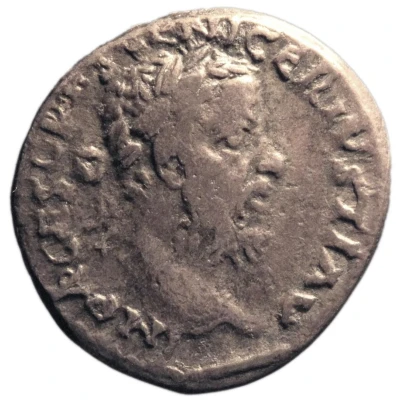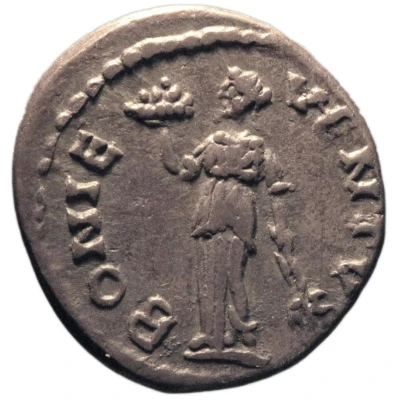Denarius - Pescennius Niger BONI EVENTVS; Fides
| Silver | - | - |
| Issuer | Usurpations of Syria (Roman Imperial usurpations) |
|---|---|
| Ruling authority | Pescennius Niger (193-194) |
| Type | Standard circulation coin |
| Years | 193-194 |
| Value | Denarius (1) |
| Currency | Denarius, Reform of Augustus (27 BC – AD 215) |
| Composition | Silver |
| Shape | Round (irregular) |
| Technique | Hammered |
| Demonetized | Yes |
| Updated | 2024-10-10 |
| Numista | N#271216 |
|---|---|
| Rarity index | 100% |
Reverse
Fides, draped, standing front, head left, holding basket of fruit in right hand and corn-ears in left hand.
Lettering: BONI EVENTVS
Translation:
Boni Eventus.
Of good success.
Comment
Source:Online Coins of the Roman Empire (OCRE)
Interesting fact
The Denarius coin featuring Pescennius Niger (BONI EVENTVS; Fides) was issued during a time of political turmoil in the Roman Empire, specifically during the Usurpations of Syria. This period saw several rival claimants to the throne, and Pescennius Niger was one of them. Despite his attempt to overthrow the reigning emperor, Septimius Severus, Niger's rebellion ultimately failed, and he was killed in 194 AD. The coin itself is made of silver and features an image of Niger on one side, with the goddess Fides (representing loyalty or faith) on the other. The inscription "BONI EVENTVS" translates to "good event" or "good fortune," which was a common phrase used to express hope for a positive outcome. Overall, this coin serves as a fascinating piece of history that highlights the political instability and power struggles that occurred within the Roman Empire during the 2nd century AD.

